When you try to imagine the most romantic creature in the animal kingdom, a goose may not be the first candidate that springs to mind. That may very well change after you learn about the mating habits of these fascinating birds. Do geese mate for life? What are their special mating behaviors? What happens when they lose a partner? Here are five amazing facts about the love lives of geese.
1. Geese Partner Up for Life
When geese fall in love, it’s forever. The bond between geese is strong and they do indeed mate for life. Geese have a lifespan of 10 to 25 years, and they prefer to spend them all with their one true love. Would you be able to hang out with your partner all day, every day for your entire life? That is just how barnacle geese choose to live. Canada geese, snow geese, and other geese species also mate for life.
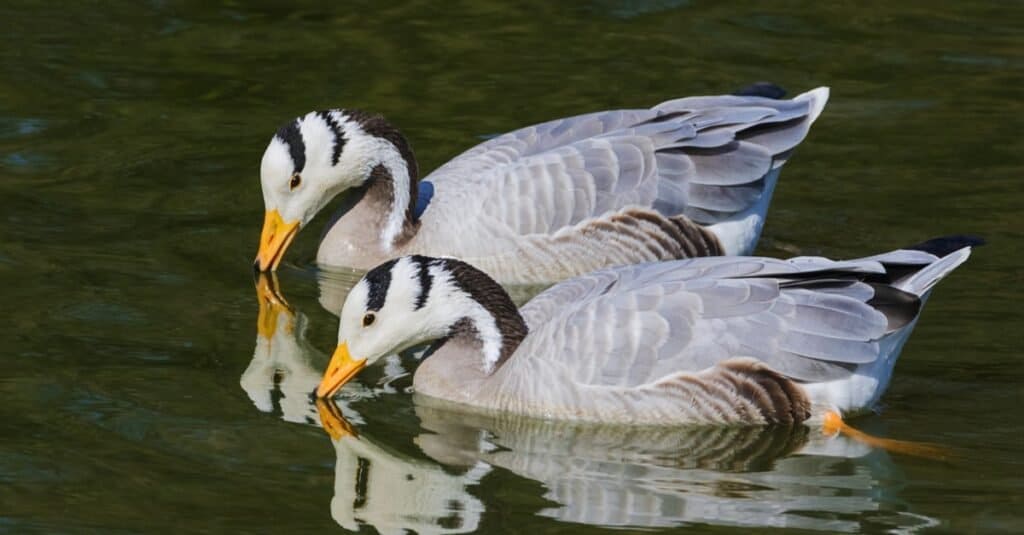
Geese prefer to spend their entire lives with one mate.
©Ian Duffield/Shutterstock.com
2. Few Birds Are More Loyal than Geese
Geese are among the most loyal of the monogamous birds. They are known to stay faithfully by their mate’s side in sickness and in health, sticking with their partner even when they fall ill. If a goose gets injured and is unable to keep up with the movements of the flock, their mate stays steadfastly with them, even if it means danger.
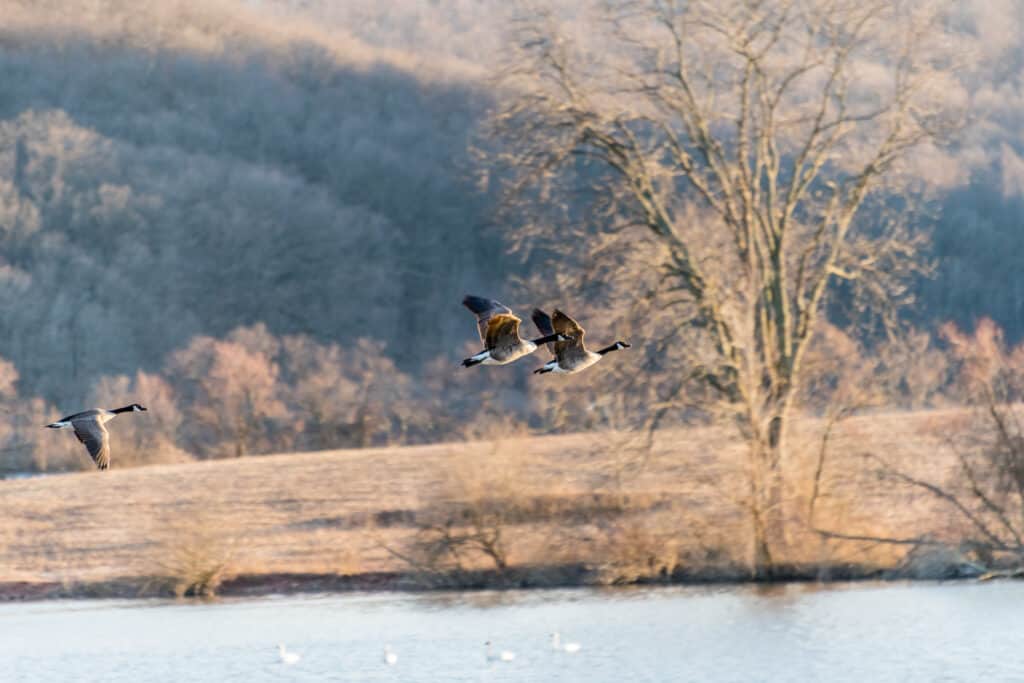
Geese are monogamous birds that form strong pair-bonds.
©MH Anderson Photography/Shutterstock.com
3. Geese Are Great Parents
A mated pair of geese tends to produce one brood of around two to eight goslings per year. Once they hatch, they spend all of their time with their parents, who watch over them closely. A young goose often spends the entire first year of its life with its parents.
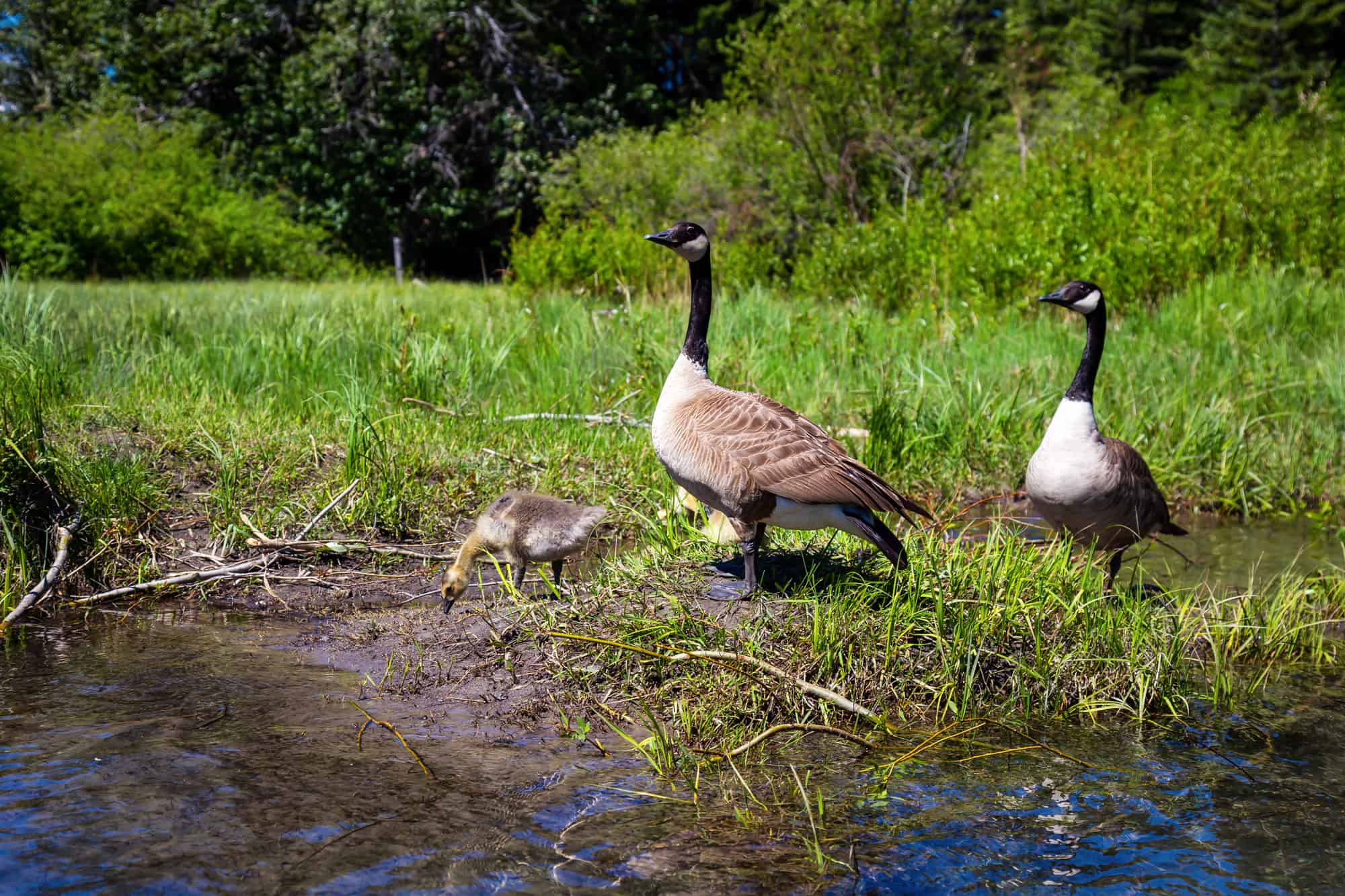
Goslings stay close to their parents during their first year of life.
©iStock.com/edb3_16
Scientists have found that having a life mate is beneficial to geese. Geese who have a longer-term life partner produce more offspring than individuals who have shorter-term partnerships. Successfully raising each brood requires the effort and protection of both parents for a long period of time, so having a reliable mate is very helpful.
4. Geese Are Very Protective
If you’ve ever approached a goose in the wild, you may know firsthand how defensive and sometimes even frightening they can be. Geese are very protective of their loved ones. An adult goose will hiss and flap its wings at a predator that is threatening its eggs or brood. Geese also fiercely protect their mates and will put themselves in danger to defend their partner. During courtship, a gander (male goose) can also be highly defensive against other males, hissing and honking at anyone who comes close to his new partner.
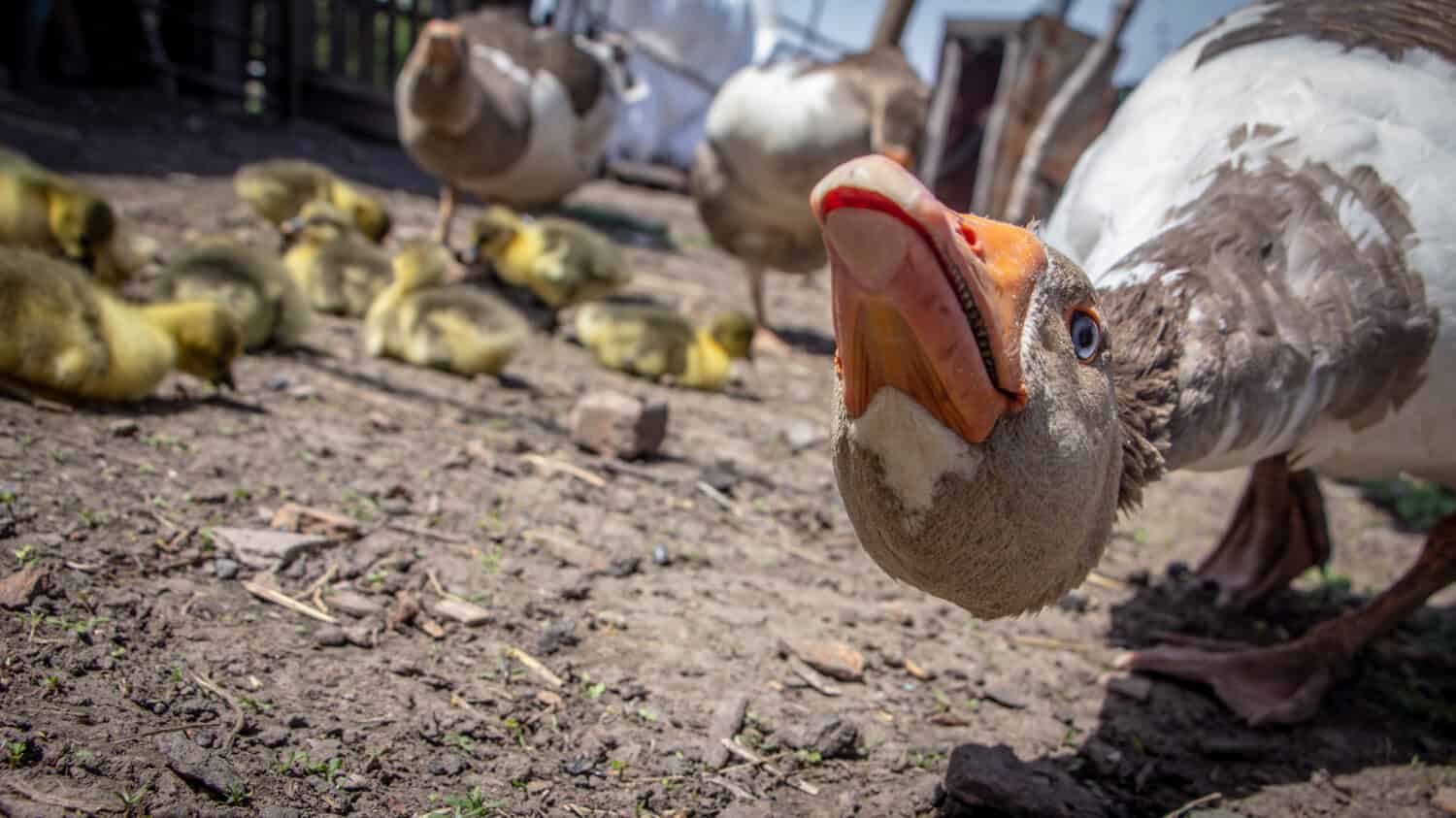
Geese are protective of their mate and their offspring.
©mykhailo pavlenko/Shutterstock.com
5. Geese Mourn Like Humans Do
Human beings are not the only animal to grieve the loss of loved ones. When a goose loses its mate, it goes through a mourning period. Grieving geese hang their heads, eat less food, and avoid social interaction. Geese can sometimes spend years mourning the loss of their partner, especially if they had been together for a long time.
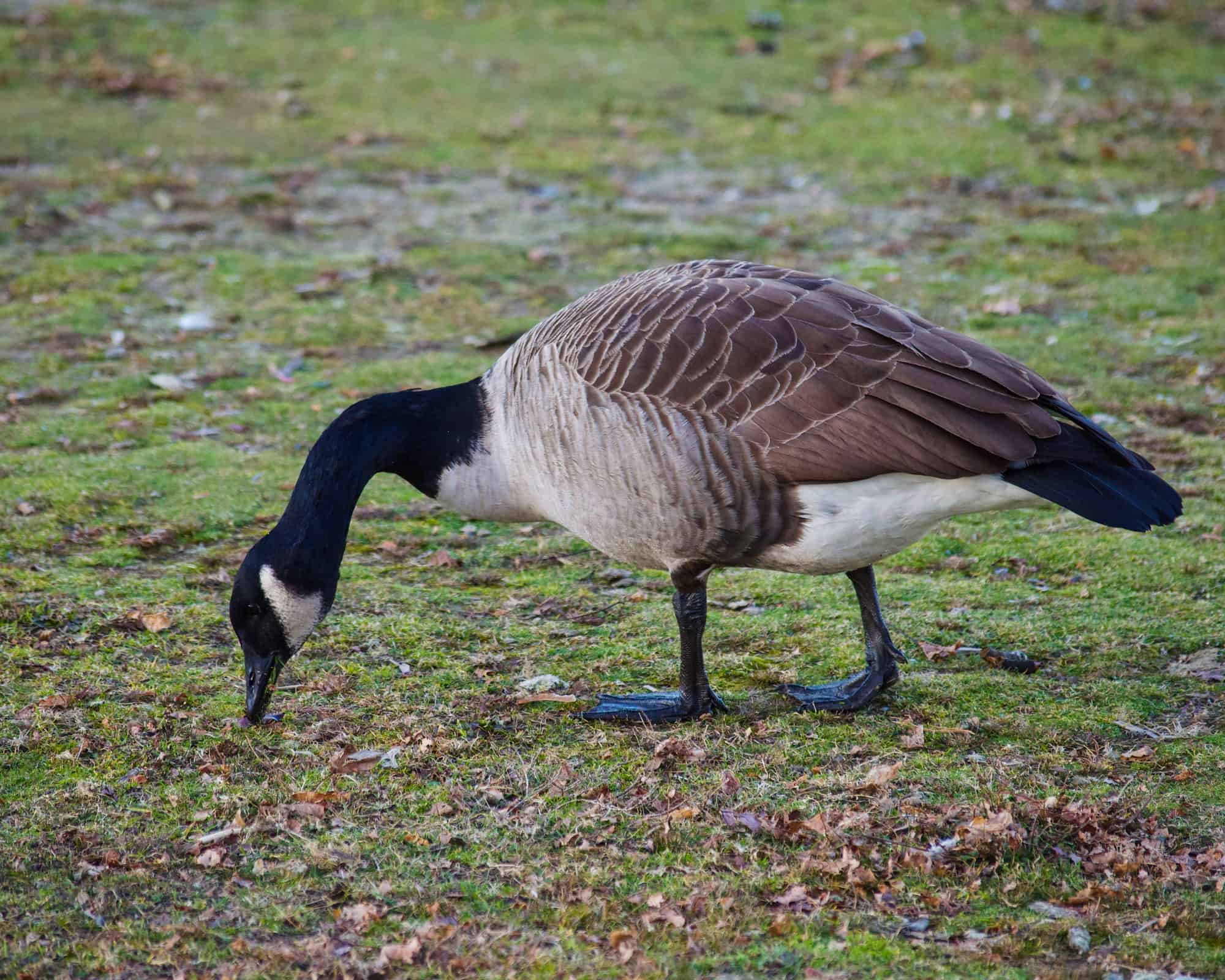
Like humans, geese take time to mourn the loss of a mate.
©iStock.com/Wirestock
As loyal as geese are, they do often find new partners after experiencing the loss of a mate. Scientists have observed that the bond formed with a new mate is often weaker than the original bond that existed with their first love. Geese who have a weaker pair-bond are more likely to mate with other geese. Even so, it is hard to deny that geese are among the more romantic of the waterfowl.
The photo featured at the top of this post is © Ger Bosma Photos/Shutterstock.com
Thank you for reading! Have some feedback for us? Contact the AZ Animals editorial team.







